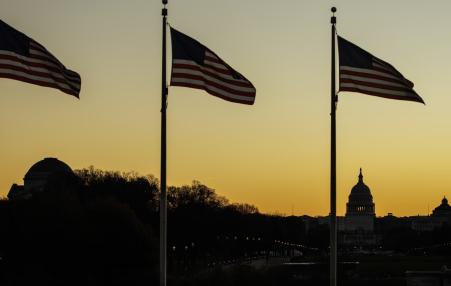To the UC Academic Workers: Your Fight is Our Fight!
The Democratic Socialists of America (DSA) stands in unwavering solidarity with the 48,000 academic workers walking picket lines across the University of California system today as three United Auto Worker locals (UAW 2865, SRU-UAW, and UAW 5810) declare an open-ended unfair labor practice (ULP) strike. Some of our highest concentrations of DSA members in unions are in these locals. For as long as you are in the fight, we will be by your side. Strike action is never easy. It is a zero-sum game. Either the workers win and advance, or the bosses win and push us back. Knowing that all you have is the strength of your organization and your solidarity for one another, you and your coworkers jump into the fight.
When the cost of living crisis collides with your poverty wages – when you watch your administrators live lavishly while you choose between child care and rent, when you work in overcrowded classrooms of students planning for their futures while you don’t have enough money for the bus ride home, when you find out that your coworker is sleeping in their car because their wages were not enough for that month’s rent and then the university chooses to bargain in bad faith – then the decision to strike becomes much easier.
UAW members voted for this strike with 98% approval. This action is one that all working people in this country can understand. If we let the bosses have their way, unchallenged, we will be whittled away to nothing. If we want to survive, then we have to fight. The academic workers in the UC system are fighting like hell. Your common good demands of affordable housing, free public transit and serious anti-racism and anti-harassment protections show us something. When workers take on the bosses, we can build a world worth living in. Thousands of academic workers have already learned this, and we count them among our comrades in the largest socialist organization in U.S. history. Now, as you and your coworkers hit the streets, we look forward to many more young people realizing that we do not have to keep living like this. That the present is not written in stone. And that we can live in a democratic and socialist future if we’re willing to fight for it.
Through the combined donations of the DSA Labor Solidarity Fund, DSA Chapters, and DSA members, we raised more than $20,000 for the UAW-UC strike fund in one day. DSA members who are not on strike are encouraged to continue donating using this form and to use this Chapter Toolkit to learn other ways to support. Victory to the strikers!
In Solidarity,
National Political Committee, DSA
Steering Committee, DSA National Labor Commission







